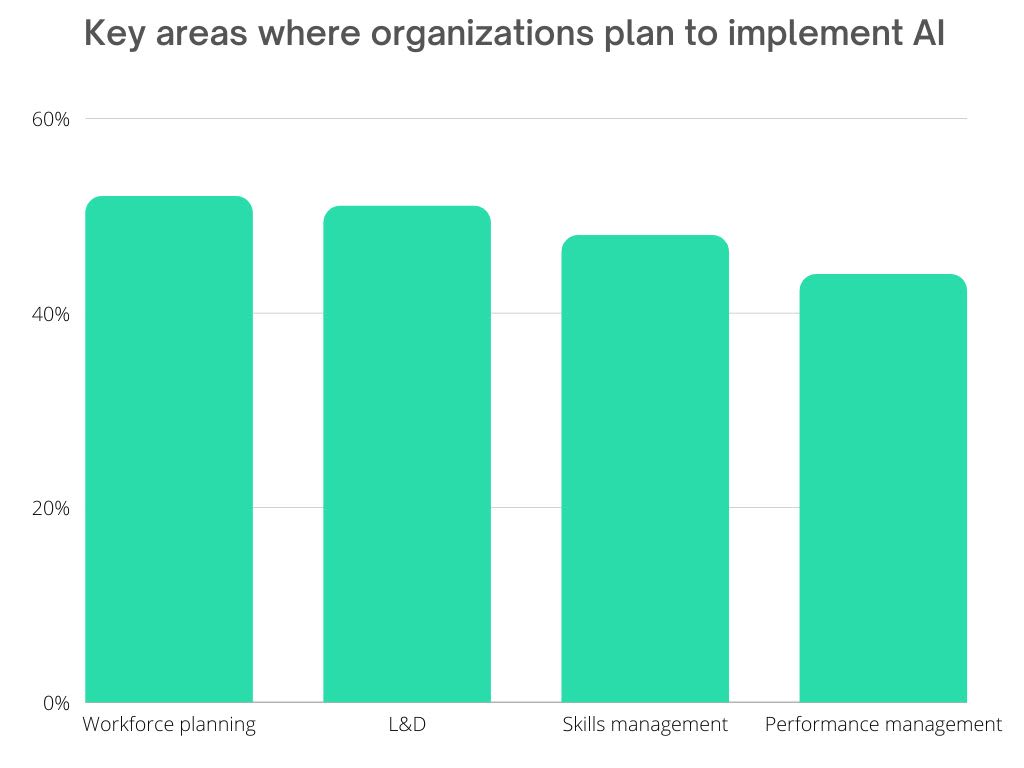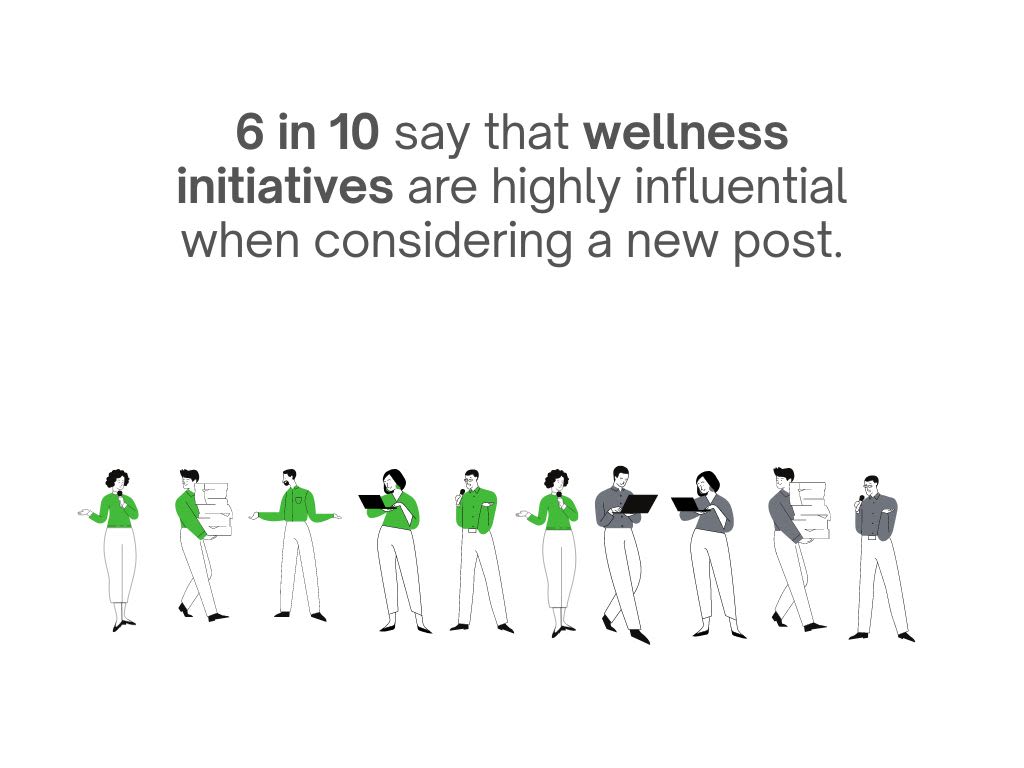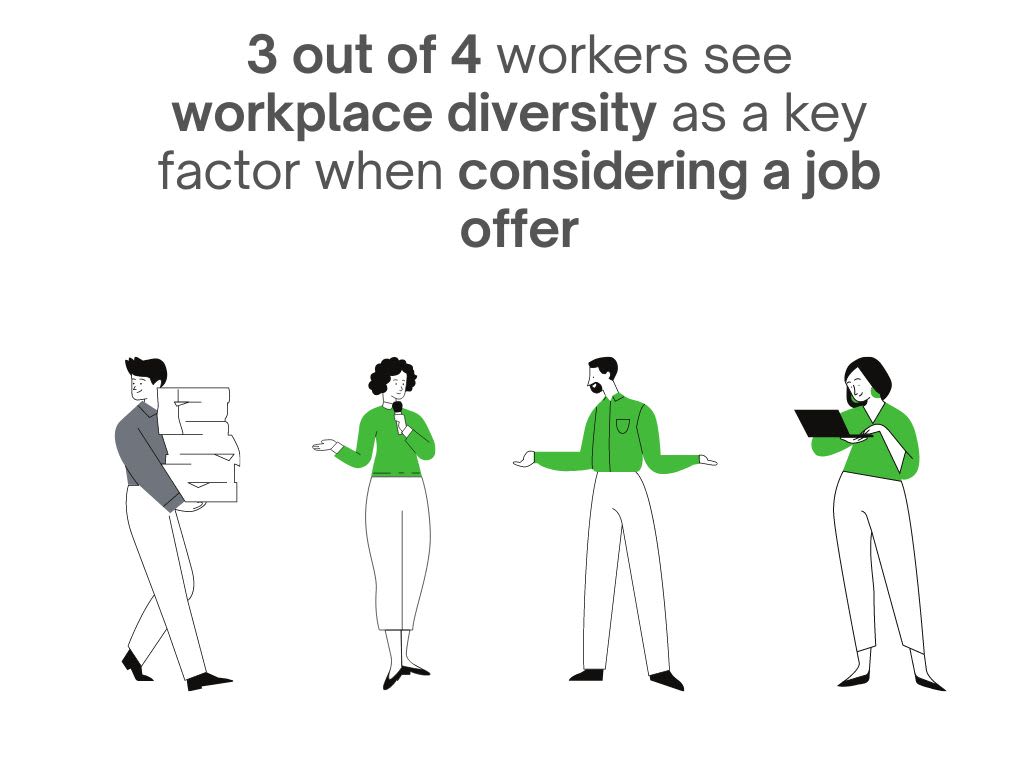
Top 7 HR Trends For 2023
October 31, 2022

The world of work has undergone significant change in the past few years. Some of those changes have been driven by technology and some by significant world events. Many have been influenced by demographics and are a response to the expectations of a younger, more diverse workforce.
Whatever the cause of change, organizations must adapt quickly if they intend to avoid the ongoing turnover crises. Unsatisfied with current employment, 6.5 million UK workers plan on quitting their jobs for something better in 2023.
HR departments are on the front line here, so what initiatives should they be focussing on as we approach the new year? Here's some key trends and statistics to consider.
1. Artificial intelligence (AI)
According to the International Data Corporation (IDC), 60% of Global 2000 companies will use AI across the complete employee lifecycle by 2023, with the technology supporting every stage from recruitment to retirement.
How quick the rollout of AI will be outside of these organizations remains to be seen but it's certainly gaining traction, and with good reason.
Research by Gartner shows early adopters reporting significant improvements across various HR functions - 62% in data-based decision-making, 57% in the employee experience, 56% in task automation and 51% in cost savings.
The most common use case for AI in HR has so far been recruitment, with 98% of Fortune 500 companies deploying some sort of data-driven process for this purpose. Whilst there's certainly benefits to using algorithms to match people with jobs, AI has evolved extensively and now provides far more opportunities for HR efficiencies.
Returning to Gartner's research, the key areas where organizations plan to implement AI in the coming years are workforce planning (52%), learning and development (51%), skills management (48%) and performance management (44%).
2. Flexible working arrangements
The office-based nine-to-five was significantly disrupted by COVID-19 resulting in a permanent shift in working arrangements. Flexibility is now key in how, when and where employees undertake their responsibilities.
Rather than seeking fully remote employment, 83% of workers prefer a hybrid model. This has become a major consideration, with 54% of employees willing to leave their current role for one that offers greater flexibility in where they're required to work.
It's not just location that matters either. The opportunity to work outside traditional office hours is also a draw for today's workforce as well as a benefit to employers, with 43% of workers claiming flexible hours have increased their productivity.
Moving into 2023, HR will need to focus heavily on flexible working initiatives to attract and retain top talent. It will also need to ensure all employees have the support and resources they need to thrive wherever and whenever their work is undertaken.
3. Employee wellness programs
Employee wellness no longer pertains to physical health and workplace safety. It has grown to encompass mental, social, financial and career well-being, with employees seeking things like a better work-life balance, training and development opportunities and retirement planning support.
Wellness initiatives are a top priority for today's job seekers, with six in ten saying they are highly influential when considering a new post. This opinion is most prevalent among Gen Z, with 67% citing wellness programs as a key consideration.
Interestingly, financial wellbeing benefits are in the highest demand with 9 out of 10 employees expecting a level of financial planning support from their employer.
Unsurprisingly in a post pandemic world, mental health benefits also rank highly and should be a primary focus, as research suggests that 12.7% of sick days taken in the UK can be linked to mental health problems.
Ultimately, organizations need to deploy holistic wellness programs that incorporate all aspects of employee health, security and happiness.
4. Increased focus on diversity and inclusion
Diversity, equality and inclusion (DEI) in the workplace has long been an HR buzzword, and whilst there may have been notable steps forward, there's still a long way to go.
Leading from the front, 49% of Fortune 100 companies have appointed DEI initiatives leaders. The story from behind however is a somewhat different story. In a 2021 Monster survey, 30% of employers admitted to having no formal DEI strategy in place, and with most businesses focused on post pandemic recovery that figure is unlikely to have shifted since.
Companies that don't focus on DEI, or limit it to its most simplistic terms are missing out. Firstly on talent, with 3 out of 4 workers seeing workplace diversity as a key factor when considering a job offer.
Second, they're missing out on the increased productivity, collaboration and innovation a diverse and inclusive work culture promotes - the research shows that diverse organizations see a 2.5 times higher cash flow per employee, and that a 35% productivity increase exists in inclusive team environments.
DEI priorities for 2023 include extending initiatives beyond recruitment to include onboarding and development, focusing on diversity at a C-suite level, and promoting inclusion in a hybrid work model.
5. Use of big data
Big Data is transforming how businesses operate across the board, and as it becomes ever more intelligent and efficient it brings impressive opportunities for strategic HR decision making.
Streamlining the recruitment process, tracking employee success rates, informing compensation packages, resource allocation, succession planning - the use cases for Big Data in HR are plentiful, but to date, the statistics are a little scarce.
What we do know is that of the companies adopting HR analytics, research shows their top five use cases to be:
- Compensation - 48%
- Recruitment and selection - 45%
- Employee engagement - 42%
- Performance management - 38%
- Retention - 37%
We also know that just 23% of HR departments report their Big Data projects to be delivering actionable insights. So while the potential exists, there too exists a disconnect between that potential and current realities.
Moving forward, organizations need to invest in better Big Data infrastructure if they want to leverage its potential for HR and people analytics.
6. Social media recruiting
Social media has historically been the domain of the creative departments, but with 86% of HR professionals saying recruitment has become more like marketing, social platforms are now as much a place for the acquisition of talent as they are for the acquisition of custom.
We're not just talking about LinkedIn either. Stats from StandOutCV indicate that while the professional network does rank top with 91% of recruiters using it, it's followed by Twitter at 47%, Facebook at 39% and Instagram at 11%.
This evolving practice pays dividends, reducing the time to hire and lowering the overall cost of the hiring process for 30% of companies deploying the technique.
Successful social media recruitment, or recruitment marketing as it's also known, is a long-term strategy that involves employer branding, considered advertising and engaging campaigns that attract the 79% of job seekers now using social media in their search for employment.
7. Mobile HR applications
Last on our list of HR trends for 2023 is mobile HR applications, the need for which will only become more prevalent as more and more organizations embrace remote and hybrid working models. With more employees outside of the office environment, HR functions need to become transportable yet stay centralized.
The value of the HR software market as a whole is expected to reach 33.57 billion USD by 2028, with the uptake of all-in-one mobile HR apps playing a significant role.
These applications give HR professionals and employees alike access to key information whilst facilitating engagement and keeping employment data secure. Payroll, expenses, leave requests, timesheets, performance and more can all be streamlined and managed remotely.
According to HR magazine, making HR services mobile friendly is a priority for 56% of companies moving into 2023.
Boost your hiring power.
Start using Neuroworx today.
Talk is cheap. We offer a 14-day free trial so you can see our platform for yourselves.
Try for free





